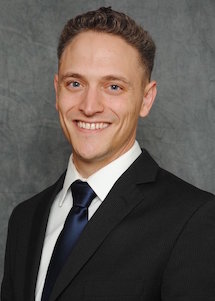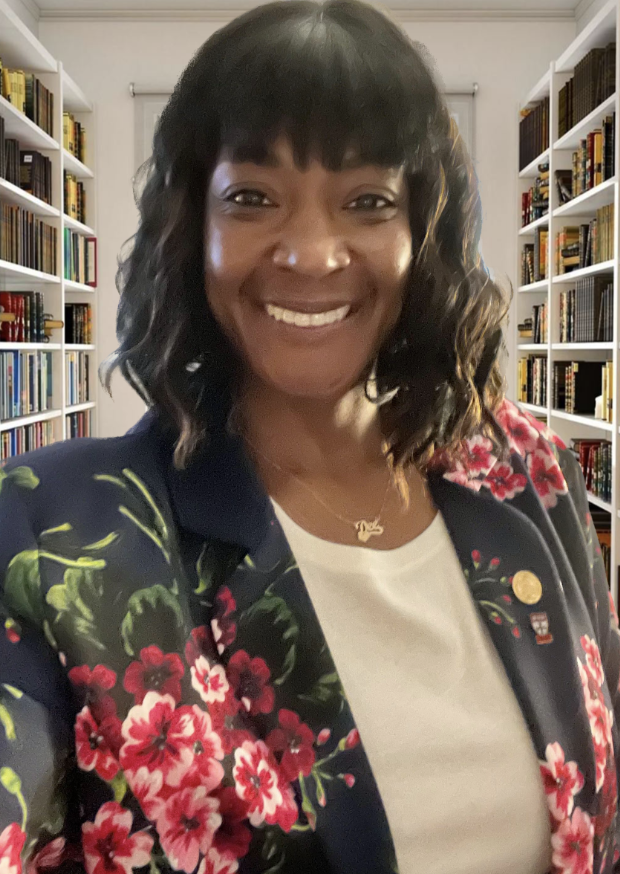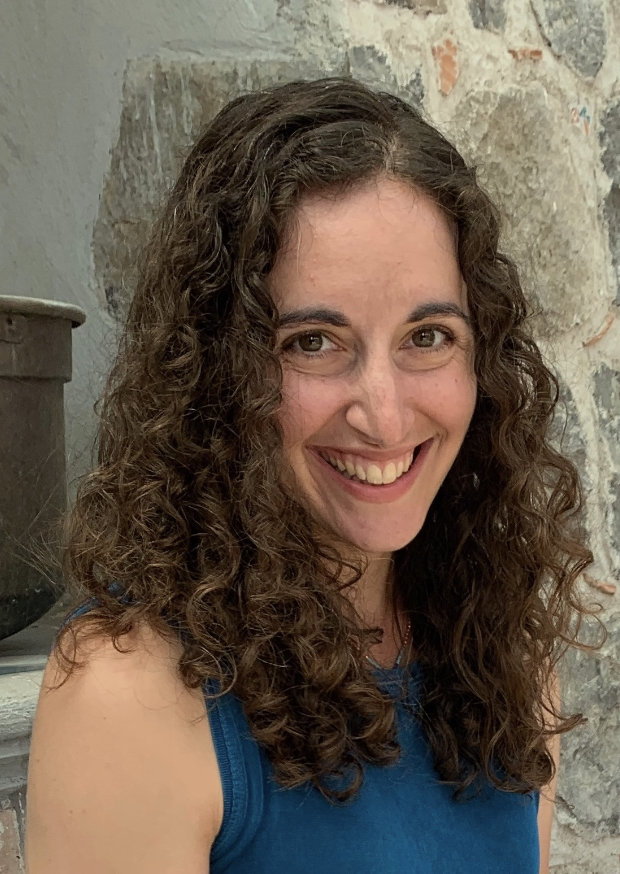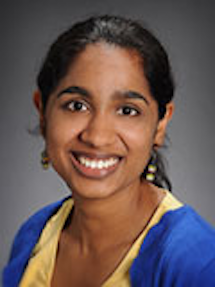2023 Cohort of HGHI Burke Global Health Fellows

Lao-Tzu Allan-Blitz
MD, MPH
“The Burke Global Health Fellowship will give me the opportunity to develop and implement a new point-of-care ultrasound curriculum in Lesotho, through which we will be able to build local capacity for using and teaching ultrasonography. In doing so, this fellowship is allowing me to continue working and growing, both personally and professionally, at the nexus of my two passions: global health and challenges in diagnostic equity.”
– Lao-Tzu Allan-Blitz
Dr. Lao-Tzu Allan-Blitz is an instructor of medicine at Harvard Medical School, and an internal medicine physician in the Division of Global Health Equity at Brigham and Women’s Hospital. He is also a fellow in point-of-care ultrasonography through the Brigham and Women’s Hospital Department of Emergency Medicine. Dr. Allan-Blitz earned his undergraduate degree in interdisciplinary studies with a colloquium in Happiness from New York University, his medical degree from the David Geffen School of Medicine at UCLA, and completed a combined internal medicine and pediatrics residency at Brigham and Women’s Hospital and Boston Children’s Hospital. He was also the chief resident of the Doris and Howard Hiatt Residency in Global Health Equity. He subsequently obtained his master’s in public health from the Harvard T.H. Chan School of Public Health. Dr. Allan-Blitz’s research focuses on bridging the diagnostic equity gap in resource-limited settings, either through implementing existing technology such as point-of-care ultrasound, designing and leading educational curricula, or developing novel low-cost molecular diagnostic assays. His work has been conducted across Peru, South Africa, Botswana, Malawi, Mexico, Sierra Leone, Liberia, Rwanda, Lesotho, Madagascar, and rural Australia.
Project Title: “The development and pilot implementation of a targeted point of care ultrasound curriculum in Lesotho”
Project Description: Lack of access to and affordability of high-quality, timely diagnostics is a fundamental driver of global health inequity. Point-of-care ultrasound (POCUS) is a portable, low-cost, radiation-free and non-invasive imaging modality, and thus has the potential to address that disparity. One major barrier to POCUS implementation in resource-limited settings, however, remains the paucity of trained and skilled educators. We propose to leverage an ongoing collaboration between the Brigham and Women’s Hospital Division of Global Health Equity, Partners In Health, and the Brigham and Women’s Hospital Emergency Ultrasound Division to complete the following three aims: 1) conduct a needs assessment of diagnostic limitations in Maseru, Lesotho in order to identify the highest-yield POCUS modalities, 2) develop a focused mixed-methods five-modality curriculum with an emphasis on teaching individuals to be educators, and 3) pilot that curriculum among four global health residents as well as seven local clinicians and 10 local nurses in Lesotho, assessing quality, feasibility, acceptably, and cost.

Demetrice “Dee” Jordan
PhD, MPH
“The Burke Global Health Fellowship is a wonderful foundational opportunity to launch my academic research career. As a junior faculty member, the financial support provides a heightened level of independence to explore, be curious, and innovative. The network of former and current Burke Fellows creates a community of support and the exchange of ideas that will augment the mentoring and career development received within my department.”
– Dee Jordan
Demetrice “Dee” Jordan is an Instructor in the Department of Global Health and Social Medicine at Harvard Medical School. She holds a dual-PhD in Health Geography and Environmental Science and Policy from Michigan State University (MSU), as well as a Master of Public Health in Global Health and graduate certificate in Global Infectious Diseases from Harvard T.H. Chan School of Public Health. Her research focuses on the spatial-ecological determinants of disease risk for vector-borne parasitic diseases and Neglected Tropical Diseases of sub-Saharan Africa and the tropics. Dee also examines issues related to health equity, health disparities, social and environmental justice. She is a council member of the American Geographical Society (AGS) and the creator of the Celebrating Black Geographers anthology, hosted online by AGS. Dee is the recipient of numerous awards including a Burroughs Wellcome Fund Postdoctoral Diversity Enrichment Program Fellowship, a Dean’s Postdoctoral Research Fellowship at Harvard Medical School, and an NIH Loan Repayment Program award for health disparities research from the National Institute of Allergy and Infectious Disease. She is a diversity, equity, and inclusion (DEI) consultant and has developed innovative programs and curricula to promote DEI principles in academic, industrial, and non-profit settings, including as an Equity, Diversity, and Inclusion (EDI) Fellow at the Harvard T.H. Chan School of Public Health. Dee is the founder of the Advancing Geography Through Diversity Program (AGTDP) at MSU, a cohort-based recruitment and retention program which seeks to address the persistent underrepresentation of African Americans, Latinx Americans, and Native Americans in US geography doctoral programs by providing fully funded graduate education and mentorship opportunities.
Project Title: “The Impacts of Climate Change on Vector Borne Parasitic Disease Risk”
Project Description: Global health preparedness requires anticipating emerging threats and coordinating risk reduction efforts. Health inequities across the globe force us to consider the amount of risk the most vulnerable populations are facing. Vector-Borne Parasitic Diseases (VBPDs) pose a daily challenge to the ability to survive and thrive for inhabitants of tropical and subtropical regions. Early warning systems of surveillance that detect changes in vector-host exposure risk across space and over time are essential to reducing global health vulnerabilities from VBPDs. This study seeks to develop three scalable nowcasting and forecasting models depicting the impacts of climate conditions on current vector habitat distribution, future vector movement, and risk of vector-host exposure for dengue, malaria, and African trypanosomiasis. The ecological niche models combine three Moderate Resolution Imaging Spectroradiometer (MODIS) data products for analysis in a Google Earth Engine environment: day and night Land Surface Temperature (LST), Normalized Difference Vegetation Index (NDVI), and Land Use and Land Cover (LULC). The risk landscape model couples the outcome of the ecological model with LandScan human population distribution data, in a Geographic Information Systems (GIS) environment to produce a per pixel, ranked risk map at a 1 kilometer spatial resolution. The value of this project is its ability to predict habitat suitability for VBPD vectors resulting from climate conditions, rank exposure risk over space for prioritizing and targeting control interventions and inform global health preparedness policies.

Maria Nardell
MD, MPH
“The Burke Fellowship provides me essential bridge funding as I work toward my goal of obtaining a five-year NIH K23 Career Development Grant to improve HIV care for migrants in South Africa. The Burke Fellowship will allow me protected time to develop important research skills, collect and analyze preliminary data, travel to South Africa to advance projects and collaborations, and complete manuscripts. In addition, the Burke Fellowship is a wonderful opportunity to be a part of the HGHI community.”
– Maria Nardell
Maria Nardell, MD, MPH is a researcher in the Division of Global Health Equity at Brigham and Women’s Hospital and a hospitalist physician at Beth Israel Deaconess Medical Center. She is interested in improving healthcare engagement for migrants and other vulnerable populations globally and locally. Her current projects focus on HIV care and prevention for migrants in South Africa, and she has also worked in Rwanda, Kenya, Namibia, and India. Her research has been supported by the Connors Center Global Women’s Health Fellowship (BWH), NIAID T32 Training Fellowship (MGH), a Harvard University Center for AIDS Research Developmental Award, and a Hearst Young Investigator’s Award (BWH). As a Burke Global Health Fellow, she will explore preferences for HIV prevention services among migrant men in South Africa in order to design a pre-exposure prophylaxis (PrEP) program for them. In addition to her research interests, she enjoys supporting the professional development and wellbeing of students, trainees and faculty through mentoring, coaching, and storytelling initiatives.
Project Title: “Designing a Migrant-Inclusive HIV Prevention Program in South Africa”
Project Description: Migrants face unique barriers to using health services. Human immunodeficiency virus (HIV) remains one of the world’s biggest public health problems, and South Africa has 7.5 million people with HIV. This burden is disproportionately borne by migrant men, who are more likely to have HIV and less likely to use HIV prevention medications called pre-exposure prophylaxis (PrEP) as compared to men who have not migrated. The goal of this proposal is to understand how to design a migrant-inclusive HIV prevention program in South Africa. This proposal draws on the International Association for Public Participation (IAP2) framework, which suggests “levels of engagement” to inform, consult, involve, and collaborate with stakeholders when developing an intervention. It is also guided by Social Action Theory to understand how self-change, social processes and contextual factors influence health behaviors. Building on our team’s NIH-funded study, this proposal aims to engage migrant men and expert stakeholders in Johannesburg to: 1) explore factors influencing migrant men’s use of PrEP through stakeholder meetings; 2) elicit preferences for PrEP services through a discrete choice experiment survey; and 3) design a migrant-inclusive PrEP program through co-design workshops.

Shela Sridhar
MD, MPH
“I am incredibly excited to be a part of the Burke Fellowship Program. I will be able to partner closely with i4life and really implement and evaluate an effective CHW QI framework with methodological rigor which would not have been possible without the mentorship and time provided by the Burke Fellowship.”
– Shela Sridhar
Shela Sridhar is an internal medicine and pediatrics-trained physician working as a hospitalist at Brigham and Women’s Hospital and Boston Children’s Hospital (BCH). She completed a Global Health Service Delivery Fellowship at BCH where she worked on health system strengthening initiatives. Her projects at BCH included improving communication between nurses and physicians in Rwanda through the implementation of Pediatric Early Warning scores as well as formalized malnutrition rounds to decrease hospital length of stay. Shela’s interest has remained in understanding how to operationalize concepts of health equity and effectively implement policies and protocols rooted in evidence, with a focus on the protection of, and health justice for, vulnerable populations. Since her fellowship, Shela has partnered with i4life, an organization in Zambia focused on community-based nutrition and primary care to optimize data systems and address gaps in care delivery. Community Health Workers (CHWs) have been instrumental in the success of clinic initiatives. She is looking forward to continuing her work with i4life and further developing CHW programming.
Project Title: “Baseline Needs Assessment and Development of a Continuous Quality Improvement Model for a Zambian Nutrition-Specific Community Health Worker Program”
Project Description: Community Health Workers (CHWs) are a vital part of the health system in Zambia. However, the quality of care delivery and competency of CHWs remains varied across the country. Continuous quality improvement (cQI) models are rarely utilized in LMICs despite their noted efficacy in high-income countries.
Traditionally, intervening organizations have emphasized the “technical” outcomes of their programs in order to demonstrate results and influence policy makers. However, there are several social and cultural aspects of CHW programs that cannot be quantified through traditional methods and do not incorporate the voices of the community being served. Pure quantitative evaluations also fail to provide adequate explanations for the phenomena observed. These programs exist in non-linear frameworks and therefore require a multi-pronged, multi-disciplinary evaluation.
Through a mixed-methods approach, we will conduct a baseline assessment of the competency and quality of community-centered care in a nutrition-specific CHW cadre in Chilanga District (Lusaka, Zambia) and develop a cQI framework for 3 local health centers. Our assessment will evaluate their knowledge, service quality, experience, and credibility in the community. In aim one, we will identify the existing inputs, clinic processes, and both short and long-term goals of each facility to develop a logic model and necessary data system. This will be done through CHW focus groups, key informant interviews, and analysis of existing operational processes. We will then conduct a chart review to identify key socio-demographics, quantitative nutrition indicators, and a qualitative assessment of CHW empowerment and experience through focus groups in the community. By evaluating both standard nutrition metrics within the clinic as well as community engagement, we can more accurately address any barriers to uptake in management and patient attrition. This data will then be used to identify key performance and process indicators to develop a cQI model within the clinics. This cQI model will ultimately be implemented in the next phase of programming.


